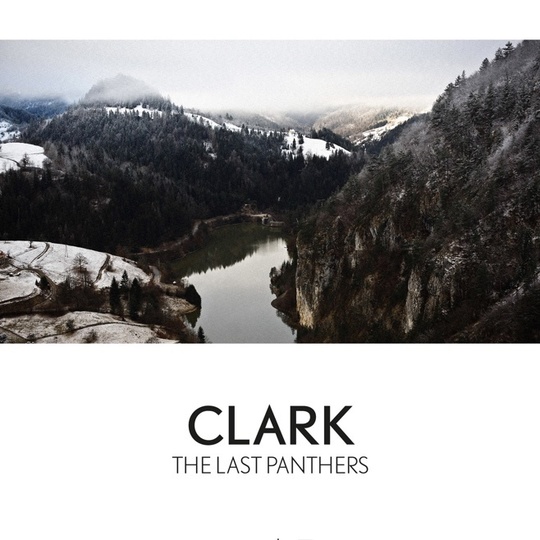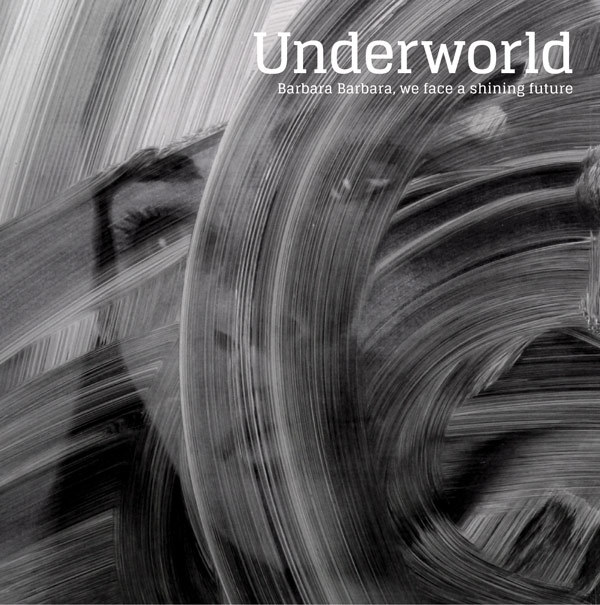The venn diagram showing modern classical and electronic composers has been steadily shrinking in recent years. Nothing is more telling about the growing overlap between the two circles (and it probably stings quite harshly to those more classically educated composer) than the sheer volume of meaty commissions going to artists from popular and electronic backgrounds. Alongside all of this, TV’s golden age has ushered in an entire generation of godlike (and slightly younger) talent behind the camera, what’s more armed with lovely fat wads of cash and for the most part damn good tastes in music. There’s been Ólafur Arnalds’ score for Broadchurch, Ben Frost’s for Fortitude, Mogwai’s for Les Revenants - the list goes on. Admittedly it’s mostly wispy, dark, and deathly serious thrillers, but with what could this music possibly work better? Warp veteran Chris Clark’s the latest addition to the pack, and as has become his standard procedure, he achieves everything he set out to do for The Last Panthers and more.
Reading through the press coverage in the run-up to The Last Panthers’ airing at the end of last year, it was pretty easy to completely miss the fact that Clark was handling the score. This was due in no small part to the fact that David Bowie was providing the theme music. (We now all know and love the theme now, as a snippet from Blackstar’s epic title track.) The fact that his Bowieness deemed fit to provide the theme music should be praise enough to pique your interest, but the tastefully depressing European crime drama was co-produced by both Haut et Court (the French company behind Les Revenants), and Warp films. Taking that into account, choosing Clark to provide the musical cues for the show must have practically been a no brainer. He’s been a consistent high performer on the Warp Records roster since 2001, and every release of his has matured, each an increasingly deep, emotive, and multi-faceted suite than the last. With this in mind, the soundtrack album for The Last Panthers is neither a standard set of deftly picked cues, nor a more bombastic heavy dose of all 60 or so tracks Clark wound up creating for the series. It’s rather a meticulously chiseled and resculpted suite of music, built from the body of work Clark composed. 'I felt like I had to rescue it from being a conventional exposition of the music in the series,' explains Clark. He himself describes the final album as 'a continuous slab of liquid melancholy', which is pretty tough to top as summaries go.
Texturally, Clark’s never been in short supply of richness, utilising a vast array of noise and instruments in his compositions before (Clark’s piano playing on ‘Black Stone’ from 2012’s Iradelphic practically out-Nils-Frahms Nils Frahm himself, and there’s plenty of that here). What sets aside The Last Panthers in the Clark-verse is both the conspicuous absence of beats, and the almost stubbornly consistent mood. The Flame Rave EP with which Clark followed up his hugely acclaimed self-titled album from 2014 seemed to point towards a more beat-oriented direction for the artist, exhuming the decaying corpse of jungle for some bleepy bloopy boogying. Big and busy Warp beats were clearly not going to work on something as drenched in forlorn greyness as The Last Panthers though. It’d probably end up sounding not so much clever Scandi Noir as it would The Transporter. So with danceable percussive rhythms for the most part jettisoned, Clark’s fills the vacant space beautifully, reaching for the standard western classical tool kit of pianos, choirs and strings alongside his own synthesized constructions filling in for brass, and providing dense mystifying beds. Arpeggiation and distant touches of quiet percussion do make their way into the mix, but only to build tension, never to provide a more rhythmic release.
The star of the score is undoubtedly Clark’s beautifully decayed upright piano, which tinkles away with an unmatchably pretty melancholy right from the get go on foggy opener ‘Back to Belgrade’. It’s the icy cousin to the piano that deserved an Oscar for its performance on Air’s Virgin Suicides opus. Clark’s put this album together easily as well as his 2014 self-titled album, which practically managed to carry an operatic narrative through its 13 dense movements. Many of these pieces flow relatively seamlessly, or at least to the extent that they would feel incomplete without one and other, such as the pairing of tear-inducing piano and synth piece ‘Naomi Pleen’ with an inversion of its central phrases on ‘Open Foe’. This segues from the sound of melting cassette tape into one of the more striking moments, ‘Strangled To Death In A Public Toilet’, where Clark employs a (presumably synthetic) choir that ultimately disappears behind a shroud of crystalline synth icicles and bassy throbs.
‘Actual Jewels’ sees the artist sample his own piano and percussive stamp noises into a strange looped vignette, and ‘Heaven Theme’ heads straight into the cavernous depths of epic Basinski-esque drone. There are very little to no especially big or memorable themes on offer here, with Clark rather achieving the less intrusive goal of crafting an extremely potent and complimentary sonic signature. The sense of loss and isolation, of melancholy, and above all of forward motion in a narrative heftily encumbered with strong emotions is strong enough to taste on the tip of your tongue. The three parts of six minute suite ‘Hide On The Treads’ closes the album, breaking from the norm with some more punishing rhythmic stabs, and more distinctly pronounced themes. Part three seems to offer a shaft of light at the end of the tunnel, and it’s truly a welcome sight. Clark’s made so much more than a soundtrack album here. The Last Panthers is a thoroughly original take on a very familiar aesthetic, and by sheer will Clark’s produced something that ranks amongst the very best of its kind.
-
8Tristan Bath's Score






















